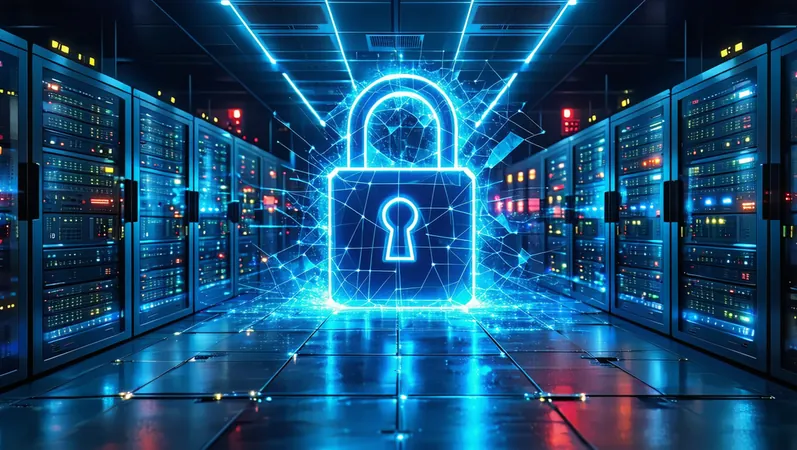
Alarming Study Reveals Over Half of Paid Android VPNs Compromise User Privacy!
2024-11-22
Author: Ming
Introduction
A shocking new study conducted by Top10VPN.com has unveiled that a staggering 53% of paid Android VPN applications expose user data—leaving millions of users vulnerable to potential surveillance and data breaches!
Study Overview
The comprehensive analysis, spearheaded by Simon Migliano, Head of Research at Top10VPN.com, scrutinized 30 of the most popular paid VPN apps available on the Google Play Store. Collectively, these applications boast over 732 million installations worldwide, marking them as choices trusted by countless consumers in the quest for online security and privacy.
Key Findings
However, the findings paint a disconcerting picture. The study revealed that over half of the VPNs assessed are leaking sensitive user data, primarily due to the absence of crucial Server Name Indication (SNI) encryption. Alarmingly, 50% of these VPNs failed to implement this essential security feature, effectively exposing users’ online activities to unwanted scrutiny.
In addition, 23% of the apps were found to leak DNS requests under specific conditions, creating further privacy compromise. These same applications were also utilizing third-party DNS servers, raising the risk of external surveillance of user activities. This revelation underscores that paying for a VPN does not necessarily equate to robust security; in fact, many users might be unwittingly giving away their private information.
Expert Opinions
Migliano did not shy away from expressing his astonishment regarding the prevalence of paid VPN services that outsource their DNS resolution to third-party entities. "A log of their DNS queries can reveal astounding amounts of personal information, including interests, political beliefs, and sensitive health or financial data," he cautioned, urging users to prioritize their privacy.
Comparative Analysis
Yet, amidst the concerning data leakages, the study found a glimmer of hope: none of the paid VPNs tested were found to leak IPv4 or IPv6 data, a stark contrast to 11% of free VPN applications which did. Migliano emphasized, “While not all paid VPNs offer flawless security, many provide significantly more robust protections compared to their free counterparts, which often falter in safeguarding user data.”
Methodology and Vulnerabilities
The research employed stringent testing methodologies to evaluate various security dimensions of the VPNs. Out of the 30 analyzed, 16 were deemed vulnerable to data leakage. Specifically, 15 services risked exposing VPN usage due to inadequate SNI protection, while seven displayed DNS request leaks under particular conditions.
Other alarming findings included over a quarter (27%) of VPNs that were not utilizing the strongest encryption protocols, leaving users susceptible to data security risks. Avira Phantom, identified as the most insecure VPN in the study, was caught utilizing the outdated SSLv2 protocol.
Additional Concerns
Moreover, nine of the VPNs exhibited instability within their protection tunnels, indicating that users might not be shielded consistently. Additionally, six VPNs sought high-risk permissions, including access to location services and camera hardware, often without adequate justification.
Notable offenders like Hotspot Shield, VPN Unlimited, and FastestVPN were discovered to be actively sharing or exposing personal user data, with FastestVPN highlighted for its particularly severe breaches—including the exposure of users' email addresses in unencrypted server requests.
Conclusions and Recommendations
“It is a common misconception that merely paying for a VPN guarantees top-tier security and privacy,” remarked Migliano. “Our findings demonstrate that consumers must be vigilant and informed about the vulnerabilities inherent in VPN selections.”
To counter these alarming revelations, the study outlines a range of recommendations for consumers. Users are encouraged to conduct thorough research on VPN providers, confirm encryption standards, assess permission requests judiciously, and remain vigilant about ongoing security updates related to their chosen VPN services.
“Our mission is to equip users with the essential knowledge to confidently protect their online privacy,” Migliano concluded. “By shining a light on these issues, we aim to push VPN providers to elevate their security protocols and maintain the trust that consumers rightfully expect.”
With the growing focus on online privacy, it's vital for users to stay aware and proactive about their choices in VPN services. Don't fall victim to the false sense of security; educate yourself to safeguard your personal information!




 Brasil (PT)
Brasil (PT)
 Canada (EN)
Canada (EN)
 Chile (ES)
Chile (ES)
 España (ES)
España (ES)
 France (FR)
France (FR)
 Hong Kong (EN)
Hong Kong (EN)
 Italia (IT)
Italia (IT)
 日本 (JA)
日本 (JA)
 Magyarország (HU)
Magyarország (HU)
 Norge (NO)
Norge (NO)
 Polska (PL)
Polska (PL)
 Schweiz (DE)
Schweiz (DE)
 Singapore (EN)
Singapore (EN)
 Sverige (SV)
Sverige (SV)
 Suomi (FI)
Suomi (FI)
 Türkiye (TR)
Türkiye (TR)